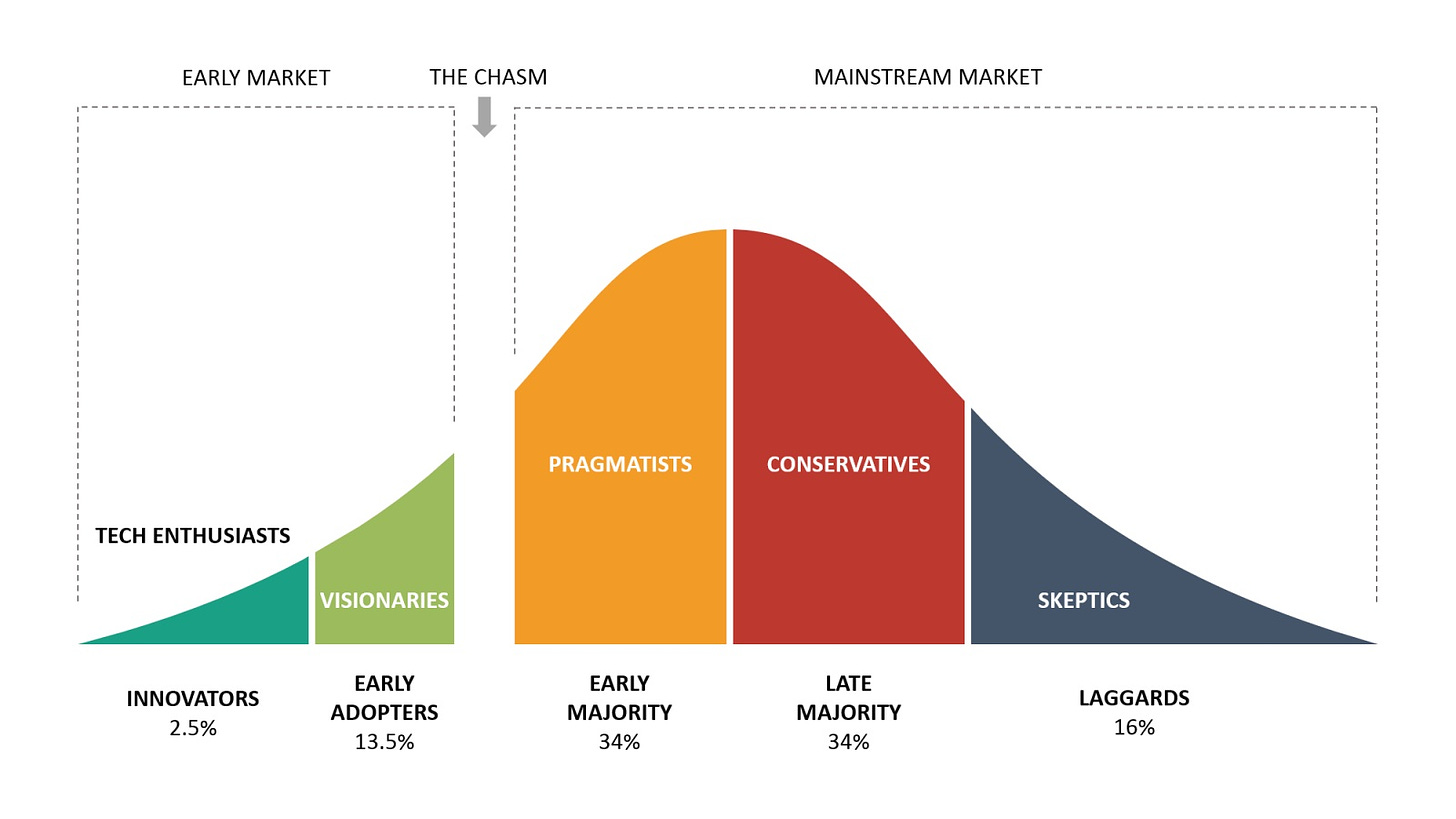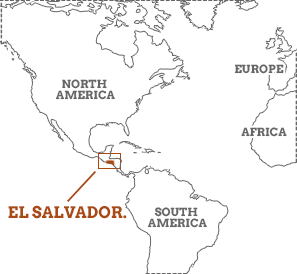[This essay is one of 7 essays for The Tech Progressive Writing Challenge. Join the build_ Discord to join the conversation.]
I arrived yesterday in San Salvador, El Salvador’s capital, for the first day of Adopting Bitcoin. The conference is hosted in an upscale neighborhood. Compared to where I was in the previous days, it feels like a different country. Huge modern malls with American chains such as McDonald’s, Starbucks, and Pizza Hut—all accepting Bitcoin—replaced small tiendas and dirt roads.
Chris Hunter from Galoy opens the conference. He draws a parallel between Bitcoin and the creation of the United States. Back then, the Founding Fathers wanted to separate the Church from the State. Today, Bitcoiners want to separate Money from the State. As Friedrich Hayek wrote in his seminal article The Denationalization of Money:
“The root and source of all monetary evil is the government's monopoly on money.”
For Hunter, Bitcoin is “Internet native digital money over IP.” He thinks that, with adoption by Twitter and El Salvador, Bitcoin is approaching the chasm, from early enthusiasts to mass adoption. He concludes that Bitcoin is among the greatest inventions of all times, with fire, the wheel, the steam engine, and the internet.
María Luisa Hayem Brevé, Minister of Economy of El Salvador, then gets on stage. In perfect English—coming from France where politicians barely speak English, I’m impressed—she starts a charm offensive aimed at Bitcoiners and investors. Her government wants to take advantage of El Salvador’s strategic geographical location to transform the country into a digital hub for crypto, AI, and tech outsourcing. They’re on a mission to simplify investment rules and cut red tape. All governments say so; we’ll see if this holds in the future. But El Salvador has already scored points on marketing: the country used to be in the news only for gang violence and crime. Since the Bitcoin adoption, there’s been worldwide positive coverage about El Salvador for the first time in decades. With 700 attendants from 30+ countries, this conference is also a success for the government. The minister wants to make these attendants “ambassadors of El Salvador,” and judging by the enthusiasm in the crowd, it’ll be easy! To conclude, she boasts El Salvador’s insolent growth, with an expected +9% GDP growth in 2021, compared to 5.2% in Latin America and the Caribbean, according to the World Bank.
The Salvadorans and Americans—including one Salvadoran American—behind the Bitcoin Beach initiative sit on the next panel, held in Spanish and English. I overestimated my Spanish skills and didn’t take headphones for the translation, so I couldn’t understand everything… Still, speakers remind us of El Salvador’s tragic history, with a 12-year civil war taking the lives of 80,000 people. Moving to the US to send money to relatives has long been the only dream of young Salvadorans. When parents emigrate, they often leave their kids behind in El Salvador. Growing up without their parents, these kids fall prey to gangs who offer them a sense of belonging, a second family, and economic opportunities. Social projects in the beach town of El Zonte—that would later become “Bitcoin Beach”—initially focused on breaking that cycle to show young Salvadorans that they could build a future in El Salvador. [See also this article: “How Surfing Saved Me From Joining the MS-13 Gang”] Later, Bitcoin arrived in the city, thanks to an anonymous donor who supported social projects with “the only requirement to develop a bitcoin-based economy.” Bitcoin was the perfect tool to empower the local community. Before the Bitcoin law, only 1.8 million people in El Salvador (28% of the population) had a bank account. Now according to government sources, 3m people have a bitcoin wallet:


Unbanked people could not save: they spent all their hard-earned money at the end of the month. For the first time in their life, they can save. Community leaders used Bitcoin as a tool for financial education in El Zonte, teaching kids what money is and why saving is essential. The discussion gets extremely emotional when one Salvadoran speaker cries, mentioning all his friends who didn’t have this opportunity to use Bitcoin before, and I guess, ended up in gangs or poverty. That’s why for all the speakers, Bitcoin is hope. There’s also a new sense of pride among the diaspora to see El Salvador eventually presented positively. Panelists are confident that Bitcoin will also increase tourism in the future, but for them, “Bitcoin is already changing life here.”
The following speakers are Veronika Kuett and Peter Young, who present “Free private cities” (FPCs): “Semi-autonomous jurisdiction within a host-nation that is run by a private operating company offering its citizens the basic services of a state against a pre-defined fee.” Anyone can join an FPC if they accept the “social contract” of the city’s service provider. This social contract is bilateral: new amendments only apply to new residents and existing residents who approve them. I find this weird because there will quickly be hundreds of different versions of that “social contract” in force in the FPC at the same time. That’s a nightmare for everyone. For Veronika and Peter, FPCs allow us to escape from inadequate regulations, for instance, housing regulations pushing prices up. FPCs want to be “SEZ+” (Special Economic Zones Plus): more than just investing, taxation, and trading regulations, they would cover all areas, especially healthcare, education, dispute resolution, and housing. Why would a government allow FPCs? Because they could share a part of the service provider’s revenue. Even though FPCs would be free to adopt any currencies, speakers see Bitcoin as a natural fit because it would allow FPCs to transact internationally without intermediaries like central banks, which can censor the transactions they don’t like. The closest projects to FPCs are in Zone for Employment and Economic Development (ZEDEs) in Honduras, El Salvador’s neighbor. Morazon and Próspera ZEDEs already have residents. Próspera’s prospective real estate looks beautiful. But will they ever be built? You can learn more about Próspera and become a resident here. Also, will El Salvador follow Honduras and create FPCs? We don’t know yet, but there’s a lot of innovation in governance in Central America!
John Carvalho then presents the launch of Synonym: “Web 3, Without the Shitcoins”. It offers a platform for creating digital tokens anchored to Bitcoin. I didn’t understand much, but if Synonym is Web 3 on Bitcoin, where are DeFi applications such as Decentralized Exchanges?
Next: Ryan from LND gives real-world examples of Bitcoin as “Freedom money”:
“Freedom to save”: he cites human rights defenders in various authoritarian countries who, before switching to Bitcoin, had their bank accounts arbitrarily frozen. Another example: negative interest rates in several Western countries. Bitcoin fixes this.
“Freedom to spend”: he explains that many Salvadorans used to take the bus to pay their bills. They can now do it instantly on their smartphones, thanks to Bitcoin. Remittances are another excellent example; Western Union charges 2% to send money to El Salvador. Sending money on Lightning is virtually free. However, converting dollars to Bitcoin still involves fees (as less as 0.10% on Binance).
“Freedom to earn”: Ryan mentions Salvadorans who raise funds online. They can now reach a large global community of donors, each of them giving a small amount through the Lightning network. Many people around the world can also get paid in Bitcoin to do microtasks on Stak.
For Ryan, the opportunity is enormous, and Bitcoin hasn’t crossed the chasm yet, a recurring theme in today’s talks. Visa and Mastercard process about $16T each year: 100,000 times more than the Lightning network today!
Many speakers mentioned the importance of user experience to cross the chasm: Bitcoin today isn’t user-friendly. Education is also crucial. In particular, one educator told me that in El Salvador, his team needs to repeat that “Bukele is not Satoshi, and Satoshi is not Bukele.” They go around El Salvador to evangelize people about Bitcoin.
El Salvador’s name comes from “Jesus Cristo, El Salvador Del Mundo” (“Jesus Christ, the Saviour of the World”), and for sure, there was quasi-religious zeal in the room today. Many attendants see El Salvador as the promised land, the “Saviour of the World.” And they see themselves as missionaries, spreading the Good [24] Word[s] around the world.
Tomorrow’s talk will expand on these themes, with a recurring question: How can El Salvador become the Singapore of Latin America?
The El Salvador Series:








When you say you can pay with bitcoins, in what currency prices are given? How is experienced the volatility of BTC/$ ratio?